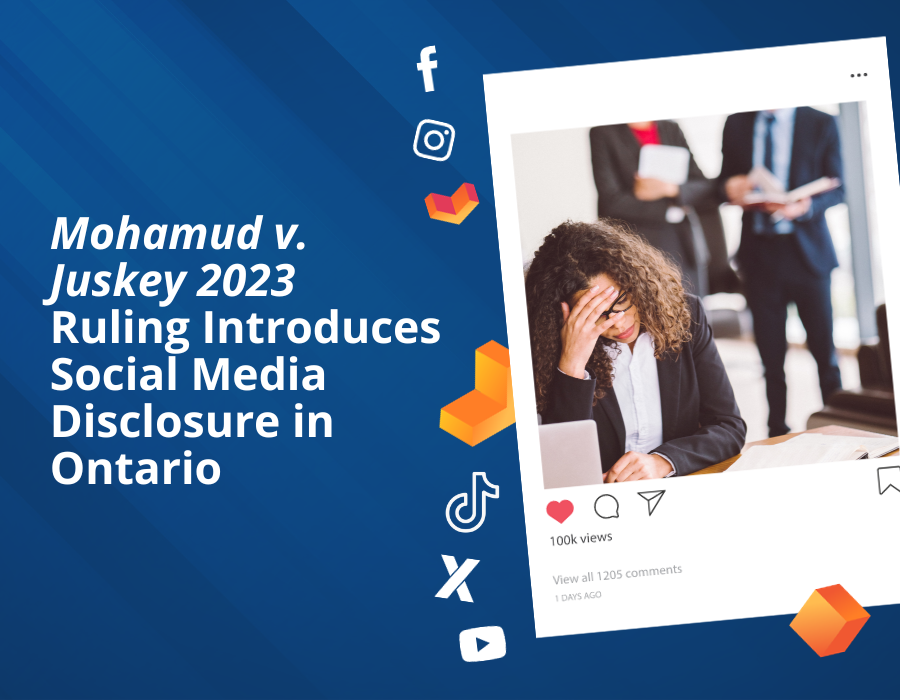 Many attorneys mistakenly believe that social media is an unnecessary form of evidence for small claims court. This misconception likely arises from the assumption that smaller cases lack the complexity and scope of larger litigations and, therefore, do not require the same level of extensive evidence often crucial in higher-stakes scenarios. Dismissing social media evidence, however, can lead to overlooking critical information that could significantly strengthen a case and even increase settlement values.
Many attorneys mistakenly believe that social media is an unnecessary form of evidence for small claims court. This misconception likely arises from the assumption that smaller cases lack the complexity and scope of larger litigations and, therefore, do not require the same level of extensive evidence often crucial in higher-stakes scenarios. Dismissing social media evidence, however, can lead to overlooking critical information that could significantly strengthen a case and even increase settlement values.
Social Media Evidence Offers Critical Support
Social media platforms are a treasure trove of information, capable of providing deep insight into a person’s activities, behaviors, and statements. This social media evidence can be instrumental in small claims cases, where every piece of evidence can have a strong impact on results.
Clarifying Potential Misrepresentation: Social media can reveal inconsistencies between claimed damages and actual activities, offering valuable insights for the attorney. For example, if a claimant alleges property damage but posts an image showing the property in good condition, the attorney can proactively address this discrepancy. This preparation ensures that the attorney is well-equipped to provide accurate explanations and maintain the integrity of the client’s case when questioned. This evidence plays a crucial role in strengthening the attorney’s ability to represent the client effectively.
Supporting Legitimate Claims: Photos, videos, and status updates can illustrate the impact of events or damages on a person’s daily life, providing compelling evidence to support their legitimate claims. Collecting this social media evidence can lead to increased settlement offers by presenting a vivid, undeniable portrayal of a claimant’s situation.
Creating Detailed Timelines: Social media helps construct a comprehensive timeline of events, which can confirm or dispute the sequence of events surrounding a case. Establishing a clear chronology is crucial to ensuring the narrative presented in court is accurate and compelling.
Providing Contextual Evidence: Beyond specific posts, the context in which social media content is shared can offer additional insights. For example, interactions with friends and family about a situation can reveal ongoing impacts and help corroborate a claimant’s story.
How Private Footprint Enhances Small Claims Cases
Understanding the role social media plays in small claims evidence underscores the importance of using tools like Private Footprint. Private Footprint is designed to help attorneys easily review and organize their clients’ social media evidence, leveraging this powerful resource to its fullest potential.
- Document Collection and Organization: Consolidate posts from various platforms, including Facebook, X, Instagram, TikTok, and YouTube, all in one place. This minimizes the time spent gathering evidence, making the process more efficient and thorough.
- Keyword-Based Search: Private Footprint’s keyword search feature enables attorneys to quickly find critical keywords within posts. This feature simplifies tracking specific terms, enabling attorneys to find relevant evidence faster and more effectively.
- Timeline Creation: Organize social media evidence to create a clear timeline that demonstrates the history and impact of an event or damage. This visualization is key to showing the sequence of events in a case or telling a story of the claimant’s suffering.
- Cost-Efficient Evidence Collection: Private Footprint provides a cost-effective way to gather and organize digital evidence, reducing the time and effort needed to assess social media profiles manually.
Justifying the Cost of Private Footprint in Small Claims Cases
Incorporating Private Footprint into the file-opening procedure only costs $100 per file plus taxes. This fee includes ten years of social media history. For such a small investment, the insights gained can significantly impact case outcomes.
While social media evidence is often dismissed in smaller claims cases, its potential to reveal fraud, support claims, and enhance negotiations is invaluable. By incorporating Private Footprint into their file-opening procedures, attorneys can leverage digital evidence efficiently, leading to stronger cases and improved outcomes for clients.
Don’t underestimate the power of social media as small claims evidence. Discover how Private Footprint can help you efficiently gather and present digital evidence to achieve the best possible results for your clients. Request a demo with our team today.





























